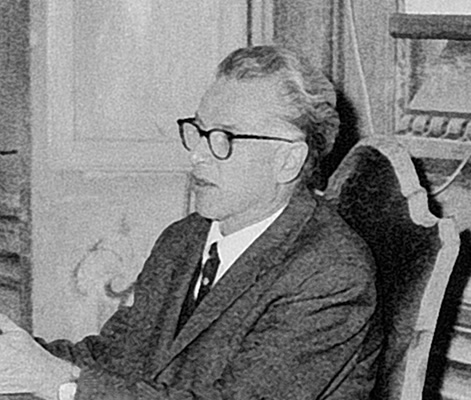Arsenio Frugoni on:
[Wikipedia]
[Google]
[Amazon]
 Arsenio Frugoni (1914–1970) was an Italian medieval
Arsenio Frugoni (1914–1970) was an Italian medieval
"Arsenio Frugoni," ''Reti Medievali'', online
* ''Arsenio Frugoni'', ed. F. Bolgiani - S. Settis (Florence, 2001).
 Arsenio Frugoni (1914–1970) was an Italian medieval
Arsenio Frugoni (1914–1970) was an Italian medieval historian
A historian is a person who studies and writes about the past and is regarded as an authority on it. Historians are concerned with the continuous, methodical narrative and research of past events as relating to the human species; as well as the ...
particularly noted for his influential and innovative work on medieval biography and religious studies.
Education and career
Frugoni received his doctorate in 1938 from the eliteScuola Normale Superiore
The Scuola Normale Superiore (commonly known in Italy as "la Normale") is a public university in Pisa and Florence, Tuscany, Italy, currently attended by about 600 undergraduate and postgraduate (PhD) students. Together with the University of Pi ...
in Pisa and pursued post-graduate studies at the Italian Historical Institute for the Middle Ages (Istituto storico italiano per il medio evo) in Rome. In 1954, he returned to Pisa to teach medieval history at the Scuola Normale. In 1962, he was appointed to a chair in medieval history at the University of Rome, where he remained until his untimely death in 1970 at age 56.
Intellectual influence
Frugoni is known principally for his contributions to the field of medieval biography and intellectual history, with a focus on the papacy and religious ideology. His most celebrated and influential work was his 1954 study of the twelfth-century political and religious reformerArnold of Brescia
Arnold of Brescia ( 1090 – June 1155), also known as Arnaldus (), was an Italian canon regular from Lombardy, who called on the Church to renounce property-ownership and participated in the failed Commune of Rome of 1144–1193. He is considere ...
. The Arnold book made a striking break with older historiographical approaches to biography and religious studies by asking how diverse contemporary authors in their texts constructed or imagined Arnold and his ideas based on their own contexts and agendas. In this way, he focused not on the individual himself, but, in an almost Rashomon-like fashion, the fragments and snippets of history that made up the image of the individual over time. In a subsequent collection of studies on the idiosyncratic hermit pope Celestine V Celestine is a given name and a surname.
People Given name
* Pope Celestine I (died 432)
* Pope Celestine II (died 1144)
* Pope Celestine III (c. 1106–1198)
* Pope Celestine IV (died 1241)
* Pope Celestine V (1215–1296)
* Antipop ...
, Frugoni used contemporary descriptions and discussions of Celestine to illuminate the theological and political controversies surrounding the papacy in the late thirteenth century. Frugoni also wrote extensively on Dante
Dante Alighieri (; most likely baptized Durante di Alighiero degli Alighieri; – September 14, 1321), widely known mononymously as Dante, was an Italian Italian poetry, poet, writer, and philosopher. His ''Divine Comedy'', originally called ...
as a political and religious dissenter, as well as on the rise of humanism and its impact on the Italian Renaissance
The Renaissance ( , ) is a Periodization, period of history and a European cultural movement covering the 15th and 16th centuries. It marked the transition from the Middle Ages to modernity and was characterized by an effort to revive and sur ...
. When he died, he was working on a critical edition
Textual criticism is a branch of textual scholarship, philology, and literary criticism that is concerned with the identification of textual variants, or different versions, of either manuscripts (mss) or of printed books. Such texts may range i ...
of Dante's letters that was published posthumously.
Many of Frugoni's ideas were more congruent with the French Annales School
The ''Annales'' school () is a group of historians associated with a style of historiography developed by French historians in the 20th century to stress long-term social history. It is named after its scholarly journal '' Annales. Histoire, S ...
and its interest in historical mentalities, than with the traditional approaches that were current in the Italian academy during his career. Consequently, he never established what one might call a "school" of historical thought in Italy, with a cohort of students who continued his work, but his work did influence a number of European scholars who were inspired by his unique approach to the sources and the kinds of questions he asked. Carlo Ginzburg
Carlo Ginzburg (; born 15 April 1939) is an Italian historian and a proponent of the field of microhistory. He is best known for ''Il formaggio e i vermi'' (1976, English title: '' The Cheese and the Worms''), which examined the beliefs of an I ...
, for example, who studied with Frugoni in Pisa, has cited him as a major influence.See, e.g. Ginzburg, ''Il filo e le tracce'' (Milan, 2006) p. 312 .
Frugoni's daughter, Chiara (1940-2022), followed in her father's footsteps and became a noted historian of medieval social history.
Selected works
* ''Papato, Impero e Regni Occidentali (dal periodo carolingio a Innoncenzo III)'' (Florence, 1940). * ''Incontri nel Rinascimento. Pagine di erudizione e di critica'' (Brescia, 1954). * Gioacchino da Fiore, ''Adversos Iudeos'', ed. A. Frugoni (Rome, 1957). * ''Arnaldo da Brescia nelle fonti del secolo XII'' (Rome, 1954; repr. Torino 1989). * ''Celestiniana'' (Rome, 1954; repr. 1991). * ''Il giubileo di Bonifacio VIII'' (1950), ed. A. De Vincentiis (Rome, Bari 1999). * "Dante e la Roma del suo tempo," in ''Dante e Roma'', Atti del Convegno di studi, Roma 8-10 aprile 1965 (Florence, 1965), pp. 73–96. * ''Il canto X dell'Inferno'' (Florence, 1967). * Dante Alighieri, ''Le Epistole'', ed. A. Frugoni (Milan & Naples, 1972). * ''Incontri nel Medioevo'' (Bologna, 1979).References
* Amadeo de Vincentiis"Arsenio Frugoni," ''Reti Medievali'', online
* ''Arsenio Frugoni'', ed. F. Bolgiani - S. Settis (Florence, 2001).
Notes